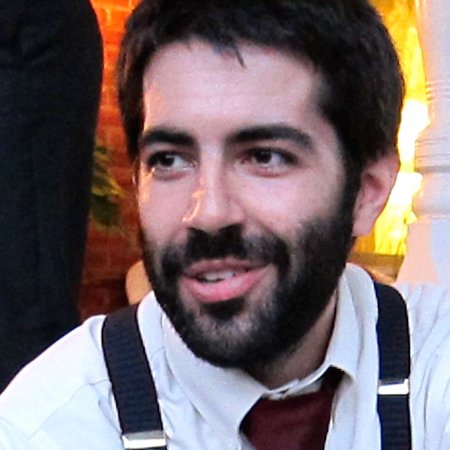It’s rare to find an individual who’s as skilled with programming as he or she is with reporting. David Herrera started learning web development during the summer before his senior year in college and quickly found that he enjoyed coding even more than reporting. After editorial stints at The National Journal’s Technology Daily and The BG News, he took a job as a web producer at the Detroit Free Press. David soon found himself on the fence: he was torn between continuing with web development, studying journalism or entering a career in law.
He decided to enroll at the School of Journalism at the University of Missouri in Columbia, where he researched theories about arguments and hidden assumptions — including when to trust expert opinions and how to interpret arguments fairly.
“Journalists try to tell us about the world, and I think understanding these theories can help us decide whether we want to accept what they say. My thesis was about whether, under the perspective of theories about argument, the reporting held up.”
Tell me about yourself. Who are you and where are you from?
I grew up in Rochester, New York. I left Rochester to attend college in Ohio, and lived in Michigan, Missouri, and California after that before moving to New York City last year.
At Alley Interactive, I focus on WordPress projects. Before this job I was a developer for the nonprofit Religion News Service and its sister websites.
What are three words that sum you up?
Tries his best.
Why Alley Interactive?
I wanted to be able to focus on code for most of my day, and I wanted to work with a team of other developers. But I also wanted to stay close to media and publishing. Alley had everything I was looking for.
How has your background as a reporter and editor influenced the way you handle web development for your media clients?
I still think journalists’ goals are valuable ones, and it’s important to me that they can meet them. Whatever I can do with technology to make their lives a little easier while they do that, is what I want to do.
Where do you see web development in ten years, especially in the realm of digital publishing and content?
That’s tough. Ten years is a long time.
I hope that in 10 years I am able to say that the web development industry has continued to improve in providing a welcoming environment and accessible tools to anyone who wants to code.
As for publishing, I appreciate that questions like “what’s your source?” and “what’s your evidence?” are asked of journalists more frequently and loudly on the web. I hope these critical thinking questions remain prominent in a decade.
What industry sites and blogs do you read regularly?
- Nieman Lab
- The American Press Institute’s “Need to Know” newsletter
- Lots of “weekly” newsletters: HTML5, PHP, CSS, Responsive Design, JavaScript
- Post Status
- Source (Knight-Mozilla OpenNews)
What is one site you admire and why?
Shane Parrish of the Farnam Street blog recently wrote:
“If you read the site for a day it won’t be as valuable as if you read it for a week, a month, or even a year…You won’t agree with everything on the site, nor should you. Posts contradict themselves all the time.”
In web terms, I suppose you could call this a content strategy.
I admire that Shane challenged his readers to defer the gratification they get from his site. The web is a fast place most of the time, and I think this statement reminds you to see learning, from his site or otherwise, as a gradual, continual process.
What were your top three dream jobs when you were five?
1. Hockey player
2. Baseball player
3. Musician
What’s your soundtrack for an intense coding session?
Too many possibilities to count. But some recent favorites include The Field, Bill Evans Trio, and Castevet.
